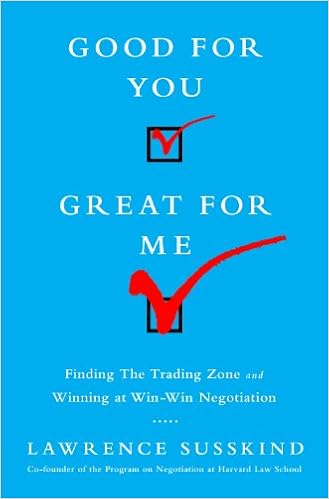[On the occasion of the twentieth anniversary of the Consensus Building Institute, April, 2014]
I don’t like to put things off. I’m for getting everything
done as quickly as possible. And even
though I’m trained as a planner, I’ve always been more focused on the present than the future. So, when we started the Consensus Building Institute (CBI) in 1983, I was
committed to moving quickly to launch a not-for-profit organization that
would offer mediation and other neutral services in as many locations as
possible, as quickly as possible.
We didn’t have a business plan. What I told prospective clients was that
we could help them address almost any kind of conflict by (1) talking with all the
disputants privately and confidentially, (2) organizing training or other
capacity-building activities that would prepare them to engage in joint
problem-solving, (3) undertaking background research that might shed light on
relevant lessons learned elsewhere, and (4) facilitating face-to-face
conversations or problem-solving efforts that could lead to mutually
advantageous outcomes. It took some
years for me to realize that people and organizations dealing with difficult
conflicts are not inclined to move quickly in new and different ways, even
though I was convinced we could be of immediate assistance. Most had no idea
about the ways in which professional neutrals can add value.
Twenty years later, CBI operates in a different way. We now tell potential clients that they must “go slow to go fast” (an argument, by
the way, that I eventually introduced in my book Breaking the Impasse in 1987). Why? Why can’t people, groups and
organizations move quickly to deploy consensus-building services or switch from
a zero-sum approach to a mutual gains approach to decision-making? There are three important answers to this
question that our first twenty years have taught us. First, doing things in a new way is likely to
seem risky (even if the old way of doing things isn’t working). Second, no one in a position of power wants
to give up control, and many think that the addition of a professional neutral
means that someone will be taking over from them. Third, even if we have identified a champion in
an organization, fully committed to consensus building, that individual needs time
to bring their organization along.
Doing Things in a New
Way Seems Risky
Even though the advantages of consensus building may be clear
to us, we need to help clients understand exactly how this new way of working
will unfold. They need to feel confident
enough about what we are proposing to explain it to others (who may be
skeptical). Whatever dangers or threats
they see, must be addressed, carefully and slowly. We need to get people to understand that consensus building
is not just a good idea in theory but that there are ways in practice of
minimizing any risks attached to moving in a new direction or doing things in a
new way.
People in Power See
Mediation As a Threat
People still confuse mediation or consensus building with
arbitration. That is, they think neutrals will impose judgments rather than
helping the parties reach informed agreements. People in the middle of disputes or conflicts tend to think
in win-lose terms. So, they are unlikely
to believe, at the outset, that all-gain solutions are possible.
Consensus building
Requires Organizational Not Just
Individual Commitment
Even in the short run, someone who wants to advocate consensus
building needs to sell others in their organization on the idea.
We want to leave problem-solving capabilities in place that
do not hinge on our involvement going forward.
In a sense, we want to put ourselves out of a job by building our
clients’ problem-solving capabilities. (I know
some people think that’s not a good business strategy, but I disagree. Satisfied clients we have empowered to handle
things on their own are much more likely to recommend us than those dependent on
us, and often they want us to partner with them on complicated projects.)
I’m excited to be part of this wonderful effort to help CBI
look ahead twenty years. Now that we
know that we have to go slow to go fast, I’m confident we can use build our knowledge base and enable a wide array of
new clients to apply consensus building to water, food, energy and other
disputes in our increasingly constrained world.





0 Comments:
Post a Comment